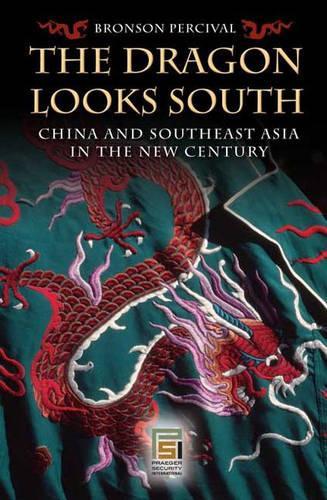
The Dragon Looks South: China and Southeast Asia in the New Century
(Hardback)
Publishing Details
The Dragon Looks South: China and Southeast Asia in the New Century
By (Author) Bronson Percival
Bloomsbury Publishing PLC
Praeger Publishers Inc
30th June 2007
United States
Classifications
Tertiary Education
Non Fiction
327.51059
Physical Properties
Hardback
216
Description
China has made extraordinarily rapid gains in Southeast Asia since it turned its old confrontational policy on its head in 1997. The Dragon Looks South focuses closely on the past five years and is a comprehensive work that reviews all aspects of China's relations with all Southeast Asian states. Percival also distinguishes between China's goals in mainland and maritime Southeast Asia, deals with all of the major external players in Southeast Asia, not just China and the United States, and contends that various international relations schools of thought may or may not be relevant to Chinese-Southeast Asian relationships.
Reviews
Percival provides a brilliant work on the change in Chinese policy that has allowed it to achieve its goals of becoming a dynamic economic growth engine. He explores the change rfom assertiveness politics to accommodation politics. In doing so, the Chinese have invited Southeast Asian countries to share in the economic growth.Percival has provided an interesting view of economic relationships in China and Southeast Asia..The book is recommended for policy makers, business executives, and undergraduate and graduate-level business classes. * MultiCultural Review *
This is a well-written book on the nuances of China's relations with the countries of Southeast Asia by Percival, currently on the research staff at the Center for Strategic Studies. While security dimensions receive primary attention, the author does not neglect economics. All references are in English. However, Percival includes material from interviews with a wide range of figures in several countries, so he is not overly dependent on secondary literature. The canard that China is a threat--economic or military--to its neighbors is effectively destroyed by his evidence and argumentation. Of course, Taiwan is an exception to that finding. Percival presents a convincing argument that there is no inherent US-China rivalry in the region, at least not in terms of a zero sum game.Recommended. Upper-division undergraduates and graduate students. * Choice *
Percival systematically marshals the political and economic facts of the various ASEAN (Association of South East Asian Nations) countries' current relations with China as well as the collective ASEAN/China relationship. His snapshots give full weight to the diversity within ASEAN, including the varying levels of foreign policy sophistication, but he also helpfully draws a general distinction between China's impact on mainland South East Asia - Thailand, Indo-China and Burma, former payers of tribute - and the maritime rest. * Asian Affairs *
A former diplomat with the US Foreign Service and State Department, Percival argues that China's growing influence in Southeast Asia cannot be explained without taking into account the politics, economics, cultures, and foreign policies of the 11 states of the region, which is among the world's most ethnically, politically, and economically diverse. * Reference & Research Book News *
Author Bio
Bronson Percival, a former diplomat and professor at the U.S. Naval War College, has worked and now writes on radicalism and terrorism in Asia, national security issues in Southeast Asia, and maritime security. During his career with the U.S. Foreign Service, he reported from countries spanning an arc from Lebanon to Indonesia. After 9/11, Percival returned to the Department of State to help analyze and design policies to counter terrorism in Southeast Asia. He is now the senior advisor for Southeast Asia and Terrorism in Asia at the Center for Strategic Studies, The CNA Corporation, in Alexandria, Virginia. Percival was educated at the University of California, Berkeley, the National War College, and the University of Chicago.
